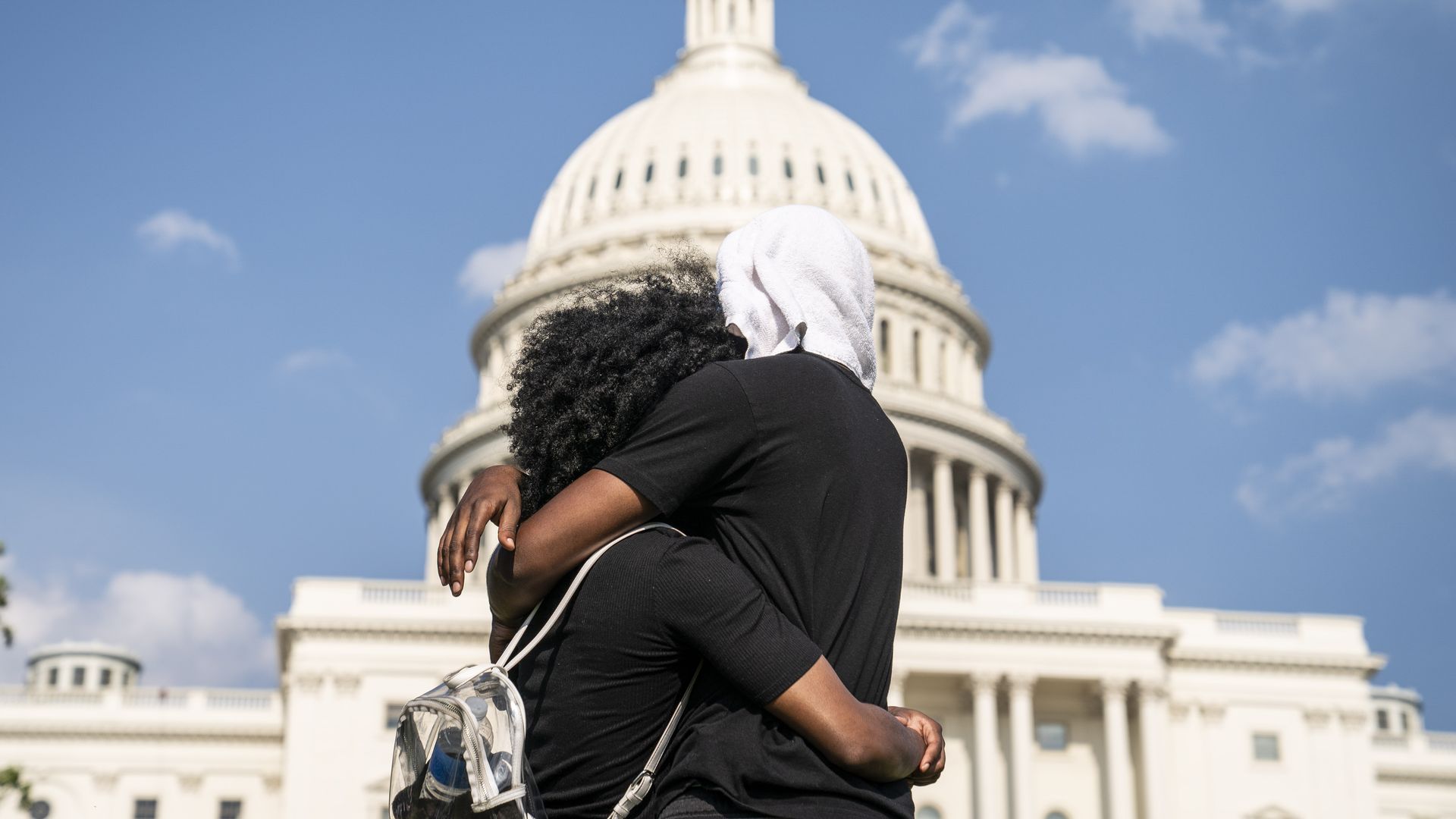House plans dramatic action on police reform
Add Axios as your preferred source to
see more of our stories on Google.

Protestors in front of the Capitol building. Photo: Sarah Silbiger/Getty Images
House Democrats will try to turn the public outcry over George Floyd's killing into policy action this week, unveiling sweeping legislation on police reform and holding a hearing with Floyd's brother, Philonise Floyd.
Why it matters: The Democratic measure represents the most drastic overhaul of federal policing laws in decades.
Details: The "Justice in Policing Act of 2020" aims to broaden police accountability, tracking "problematic" officers through a national misconduct registry and restricting "qualified immunity" (lawsuit limitations) for officers over actions in the field, according to a draft outline of the proposal.
- The bill would also reform police training, make lynching a federal crime, and ban chokeholds and the use of no-knock warrants in drug cases.
- House Democrats are aiming towards passage by the end of June.
Meanwhile, Wednesday's House Judiciary Committee hearing will be the first House hearing on policing reform since Floyd's death.
- The hearing will examine "the crisis of racial profiling, police brutality and lost trust between police departments and the communities they serve," per the committee.
- It's still unclear whether Philonise Floyd will testify in person or virtually, given coronavirus-related health precautions, a committee aide told Axios.
The state of play: Rep. Karen Bass (D-Calif.), chair of the Congressional Black Caucus (which has taken the lead on drafting the legislation) told CNN's Jake Tapper on Sunday that there is "a lot of support" among House Republicans for the bill.
- House GOP leader Kevin McCarthy has said the two parties "can find common ground" on the issue and that he hopes Congress "rises to the occasion." But Republican leadership sources tell Axios they've been left out of the negotiations.
- "We're talking to the press about this stuff more than we're talking to our colleagues," a GOP leadership aide said. "If they can put bills together and get their coalition to pass it, then, obviously, the ball’s in their court to do so. But we think it'd be a far more productive endeavor to call Congress back and open up the forums natural to the institution to debate these types of issues."
The bottom line: Both Republicans and Democrats agree that the government must meet the moment and address massive protests with meaningful policy change.
- One aide in Senate Republican leadership said legislation with bipartisan support will be seriously considered, while suggesting that police issues might be better legislated at the state and local level and noting it's hard to pass major legislation in an election year.
- It's unclear whether Republicans are willing to go as far as Democrats in terms of overhauling the nation's police system. Such changes could spark backlash from politically powerful police unions and provoke criticism from President Trump, who considers himself a law-and-order president and has promoted a "tough on crime" approach to law enforcement.
